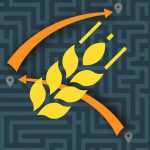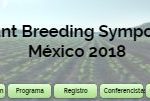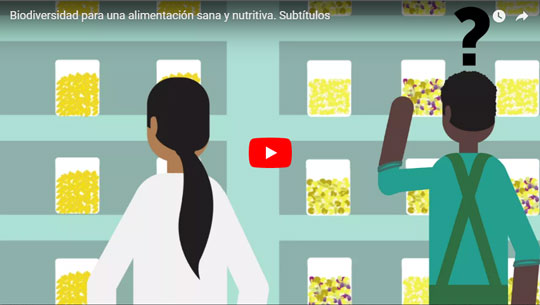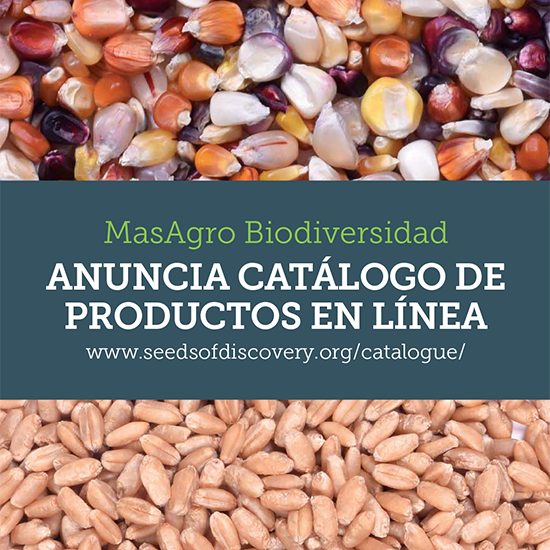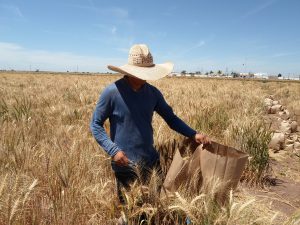The Seeds of Discovery (SeeD) initiative works under 3 themes: Maize, Wheat, and Capacity Development.
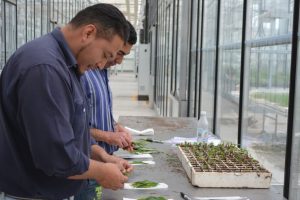
Research assistant Gustavo German and graduate student David Gonzalez prepare maize samples. Photo: CIMMYT.
Themes 1, Maize, and 2, Wheat, work to analyze maize and wheat genebank collections in search of useful genetic variation. The themes produce data on the genotypic (genetic) and phenotypic (physical) traits of native maize and wheat varieties, which they use to develop “bridging germplasm,” types or lines that breeders can readily use to develop improved varieties grown by farmers.
Both themes are working to identify and utilize native maize and wheat varieties with novel stress resistance that will increase farmer’s resilience to the greatest challenges faced by agriculture today, including stress from heat, drought and emerging pests and diseases linked to climate change.
Theme 3, Capacity development, includes all the necessary tools to effectively utilize the data and materials produced by the project, including genetic analysis software, workshops and training opportunities, and distance learning modules. All data and tools are available free to the public and can be found on this website here.
SeeD combines several key ingredients into a results-oriented research program that aims to broaden the genetic base of maize and wheat breeding:
- A diverse network of partnerships with Mexican and international institutions to enhance the reach and impact of the initiative.
- Mexico’s vibrant community of researchers with a passion for maize and wheat, augmented by CIMMYT’s expertise and links to the international R&D community.
- Carefully selected cutting-edge technology platforms and software to accelerate the characterization of both maize and wheat genetic resources at the scale and level of standardization required for a project of this size (up to 200,000 DNA samples).
- A determined focus on strengthening demand-driven and impact-oriented agricultural research capacities in Mexico and around the world.
- Passionate post-graduate students conducting research with SeeD scientists, learning skills that will lay the foundation for a more food secure future for all.
For more information please contact us at: seed@masagro.org
